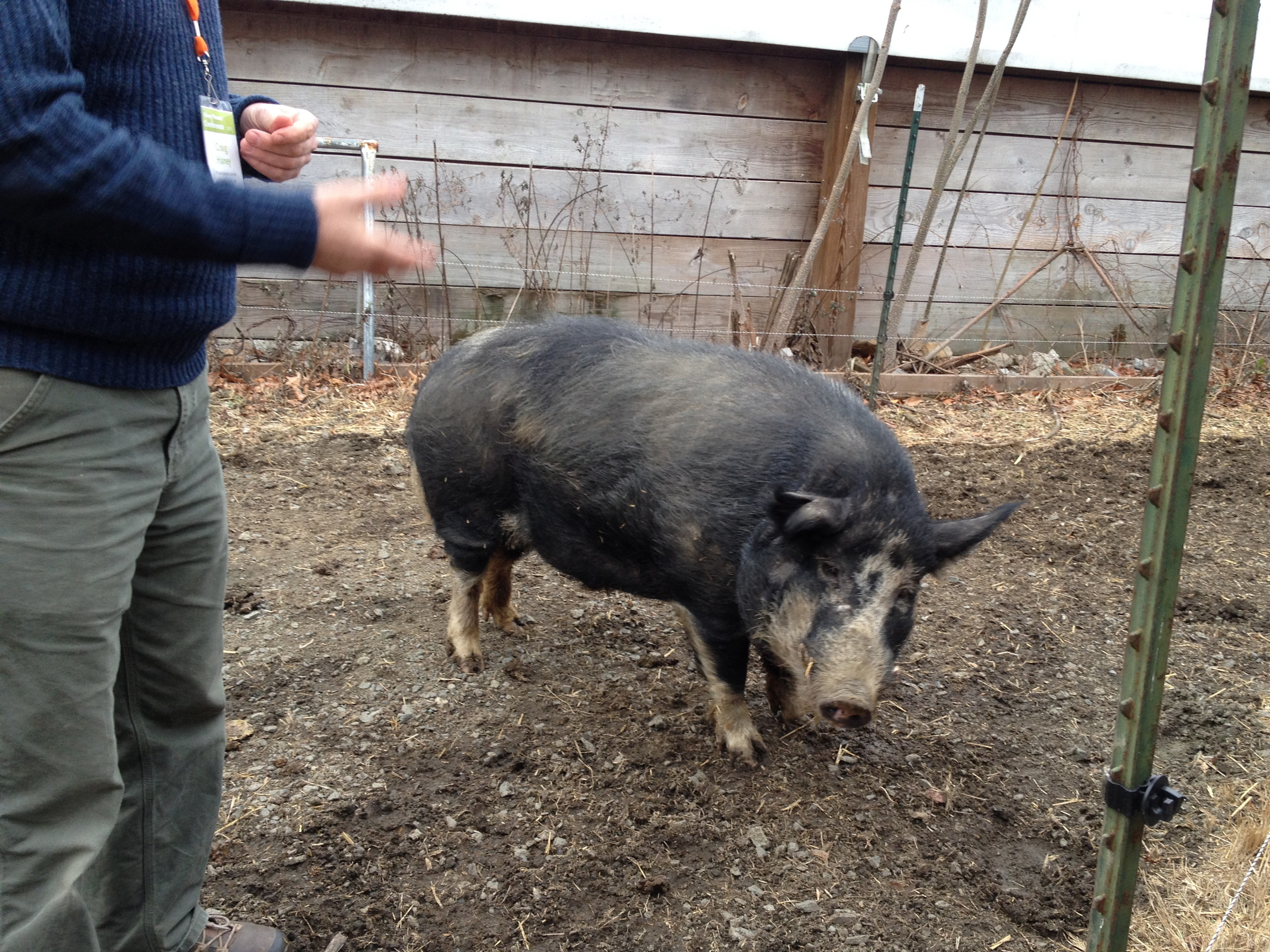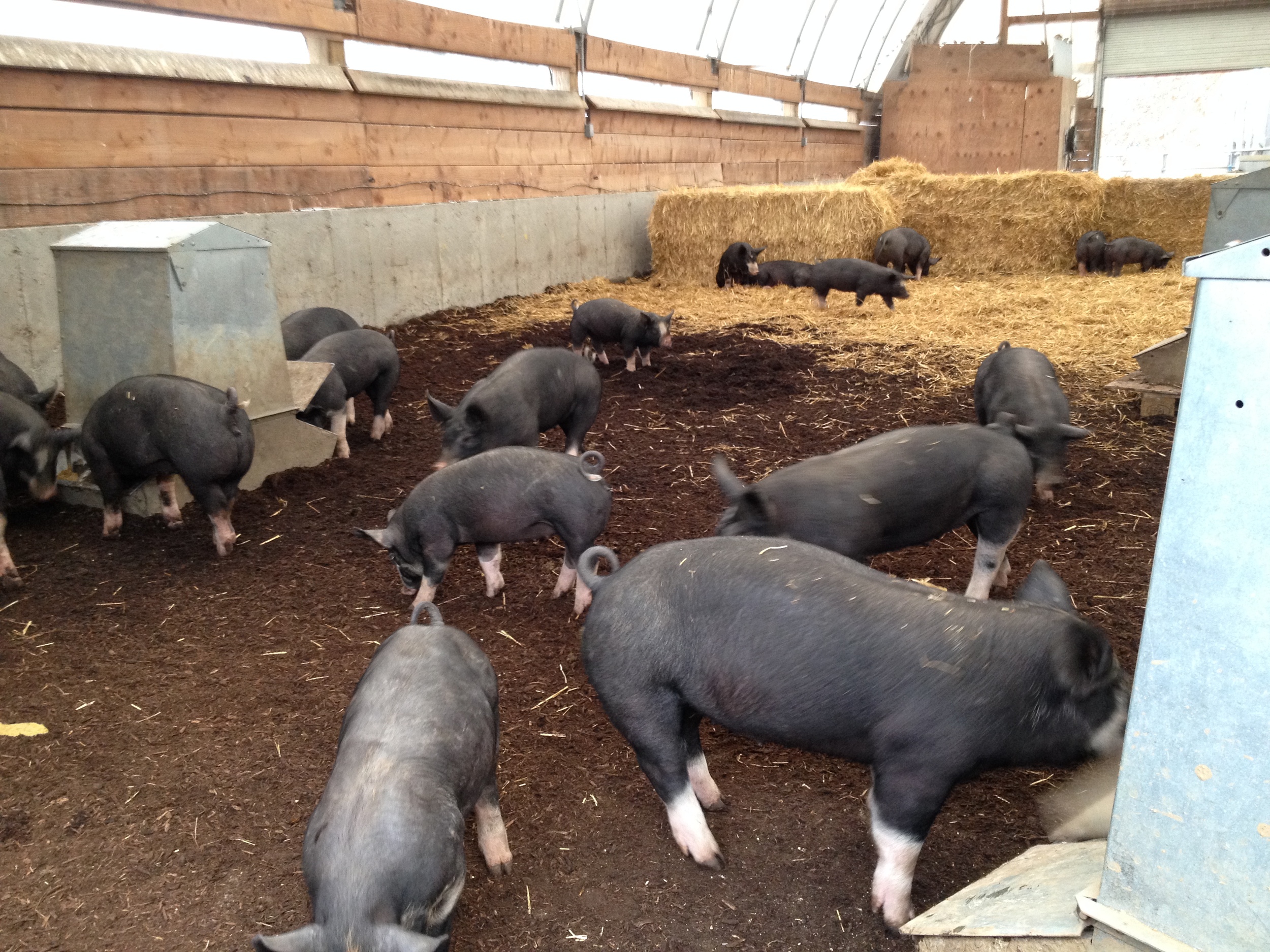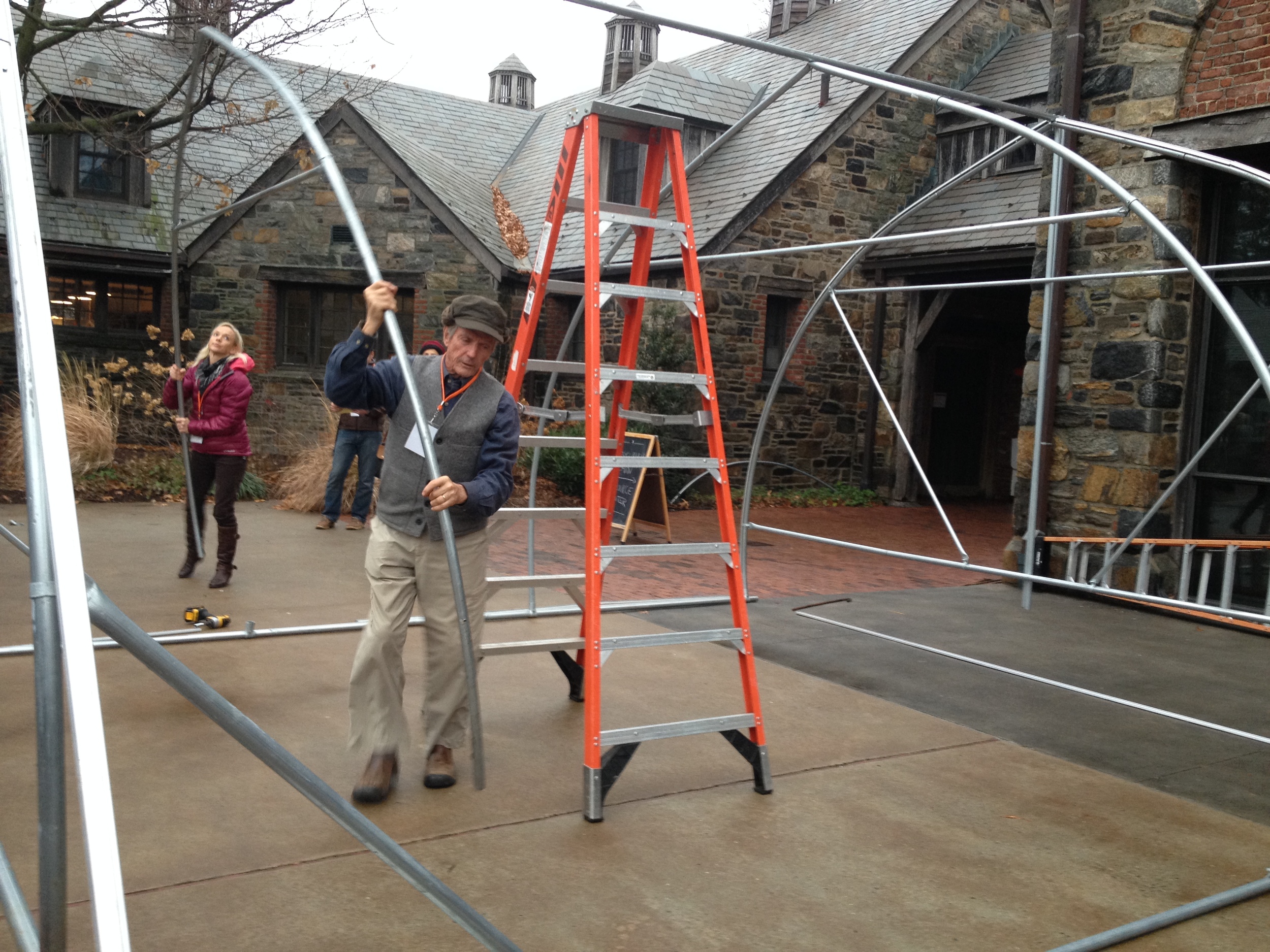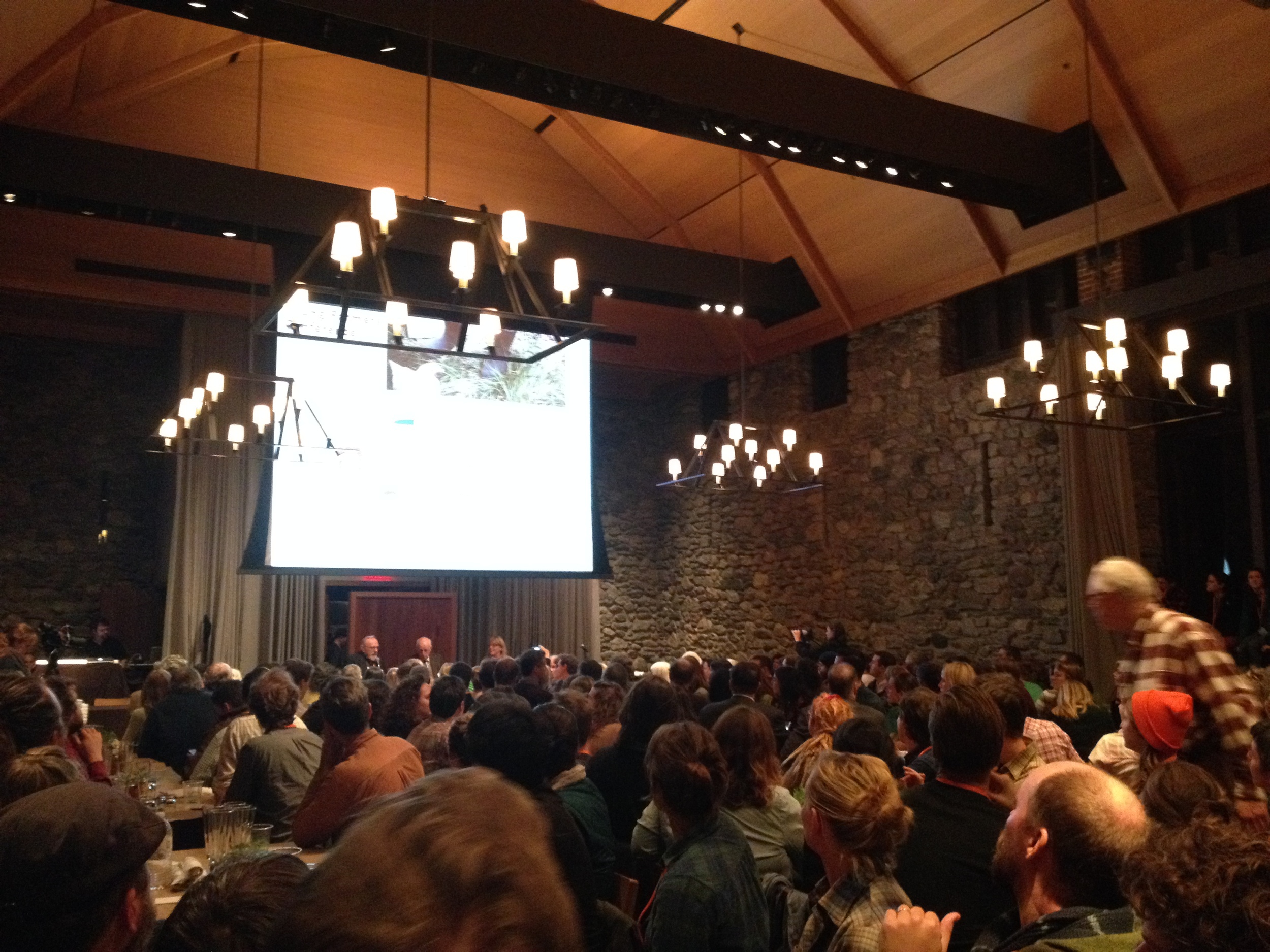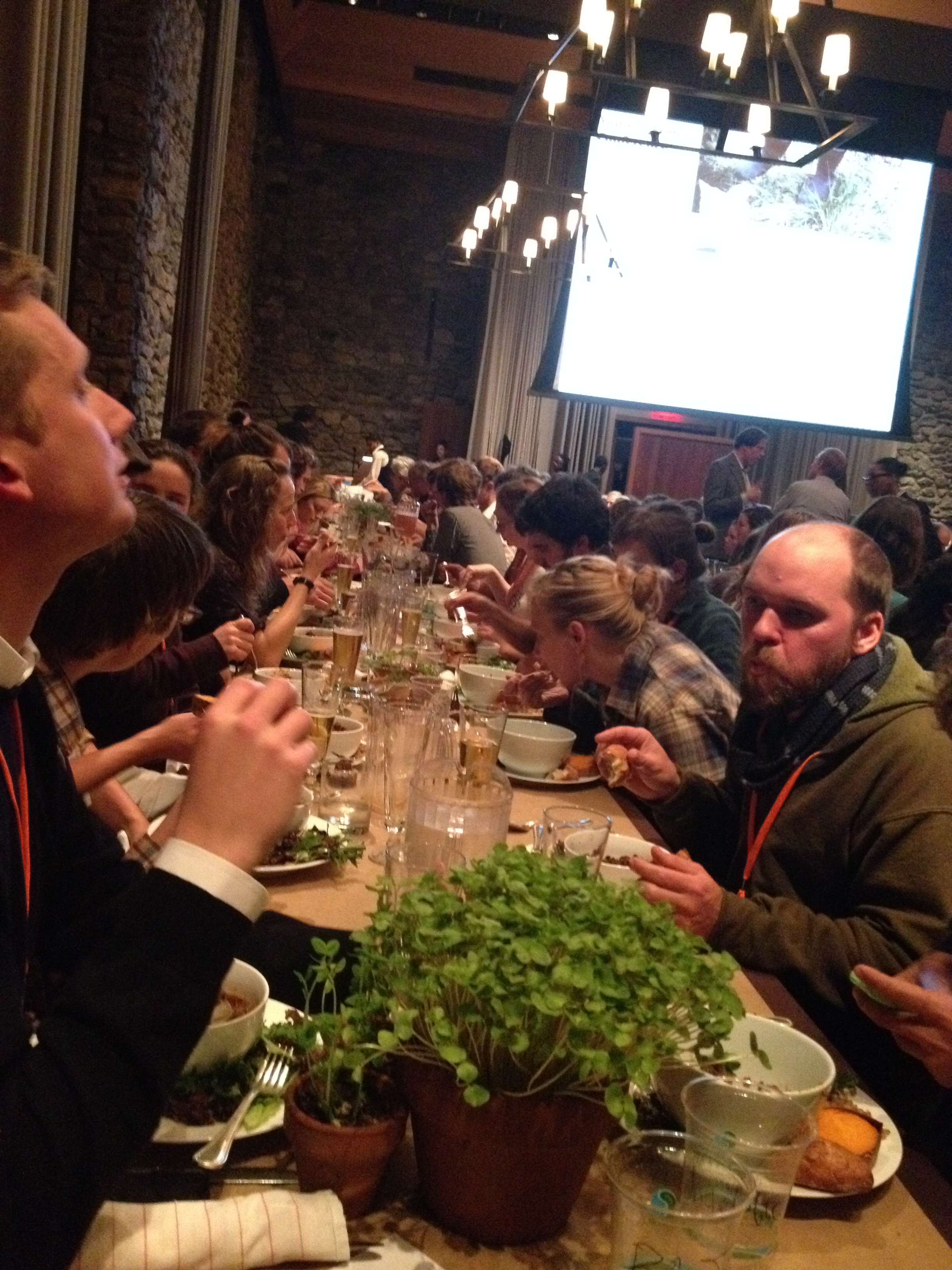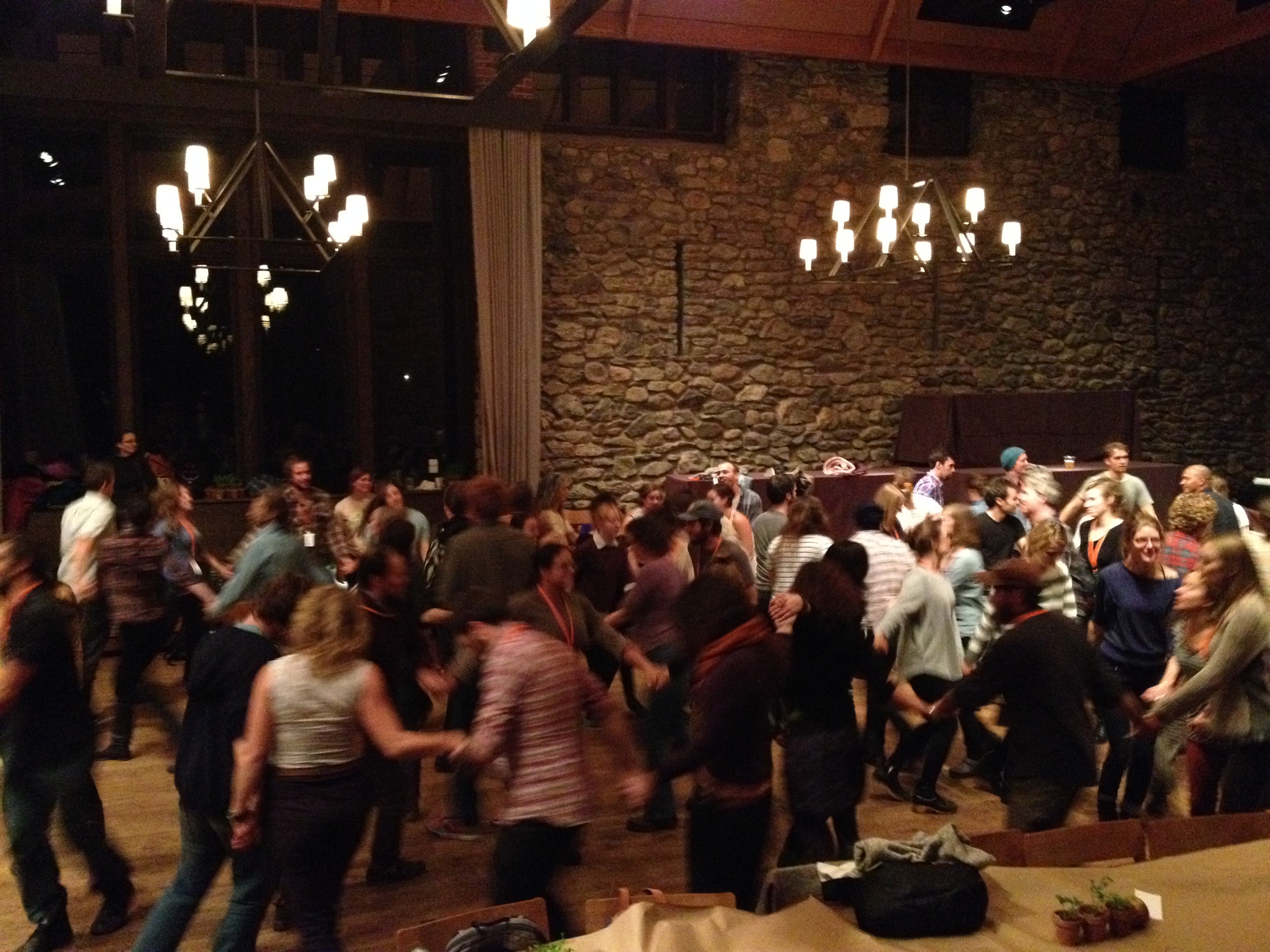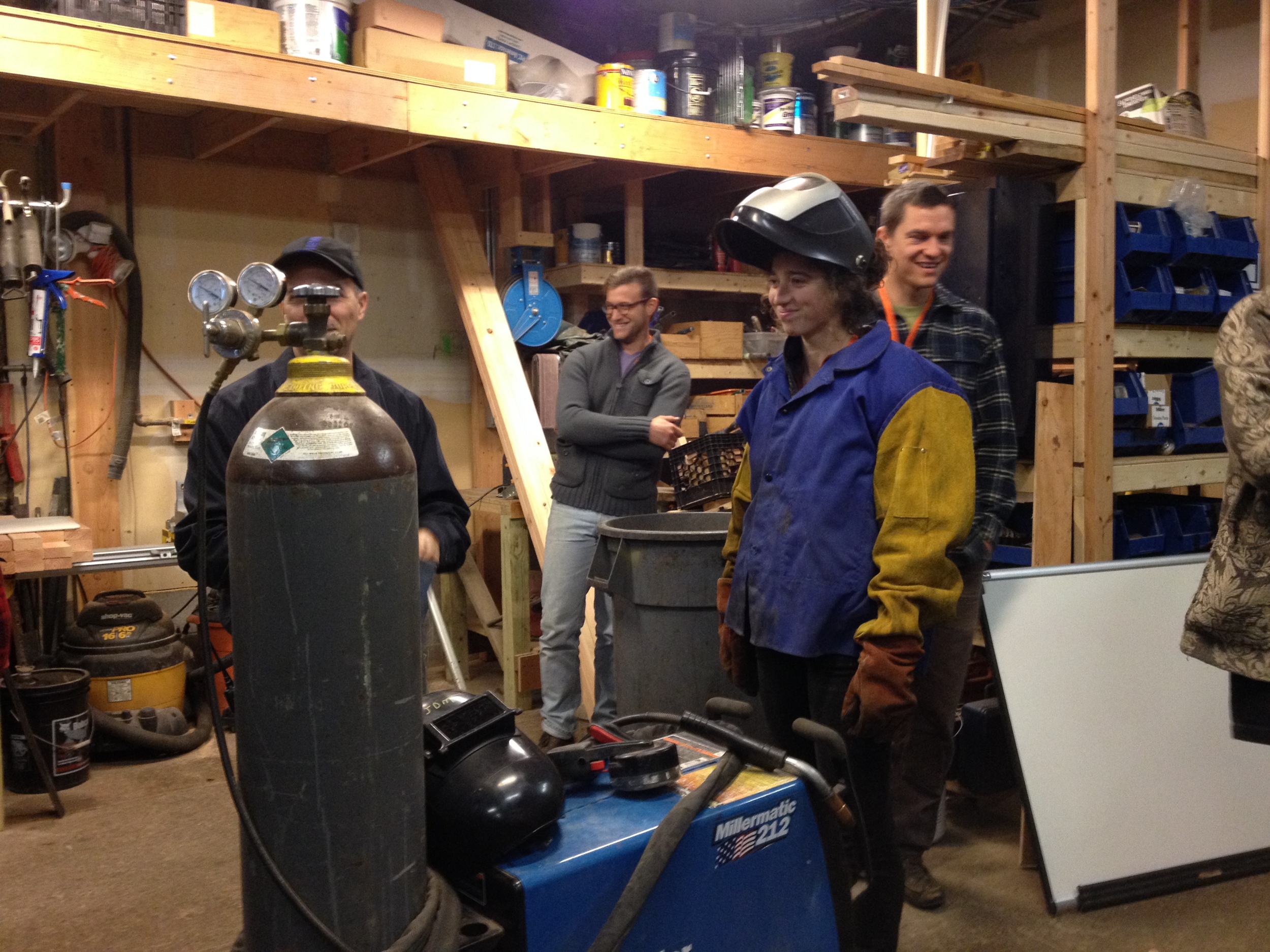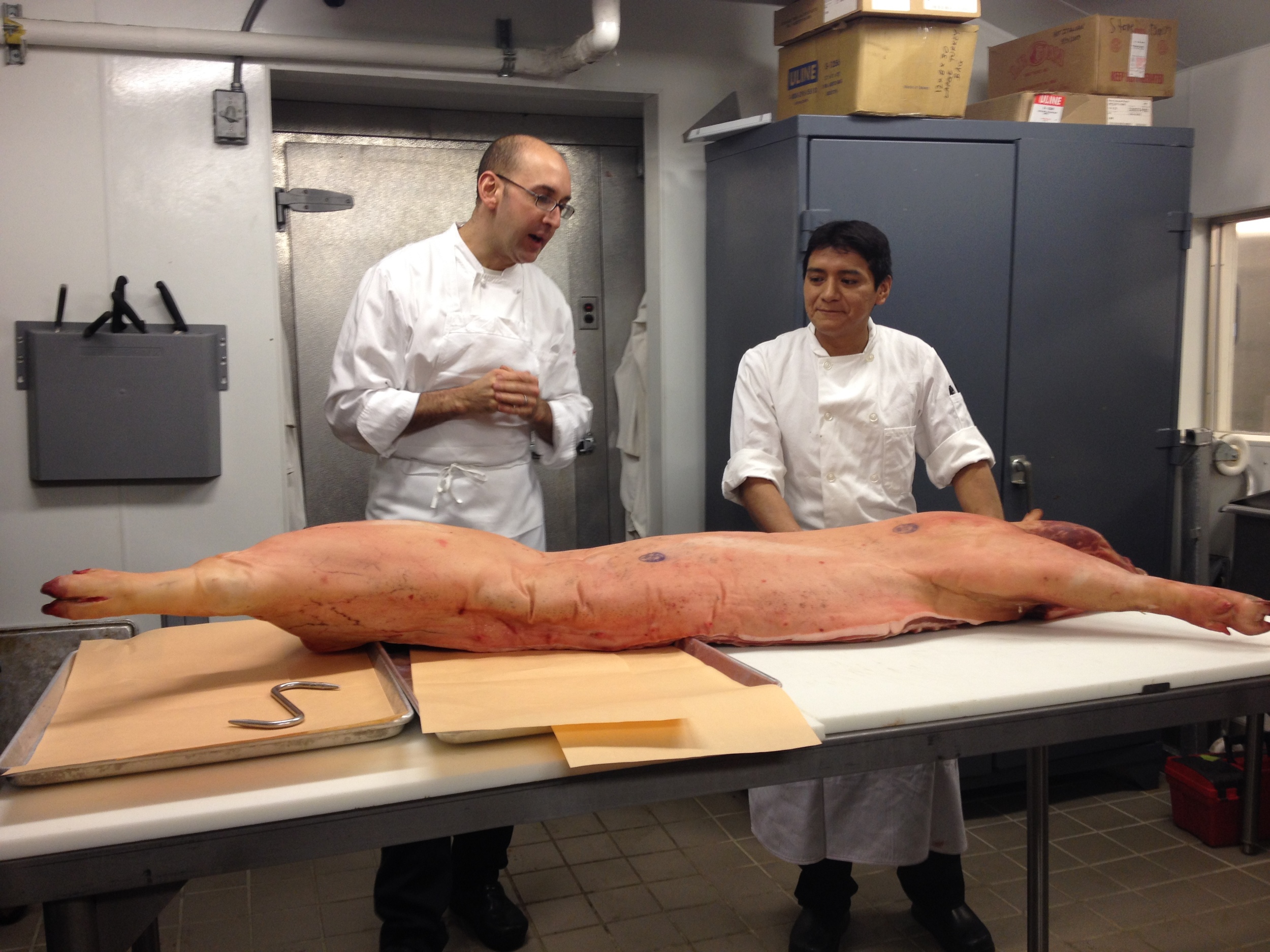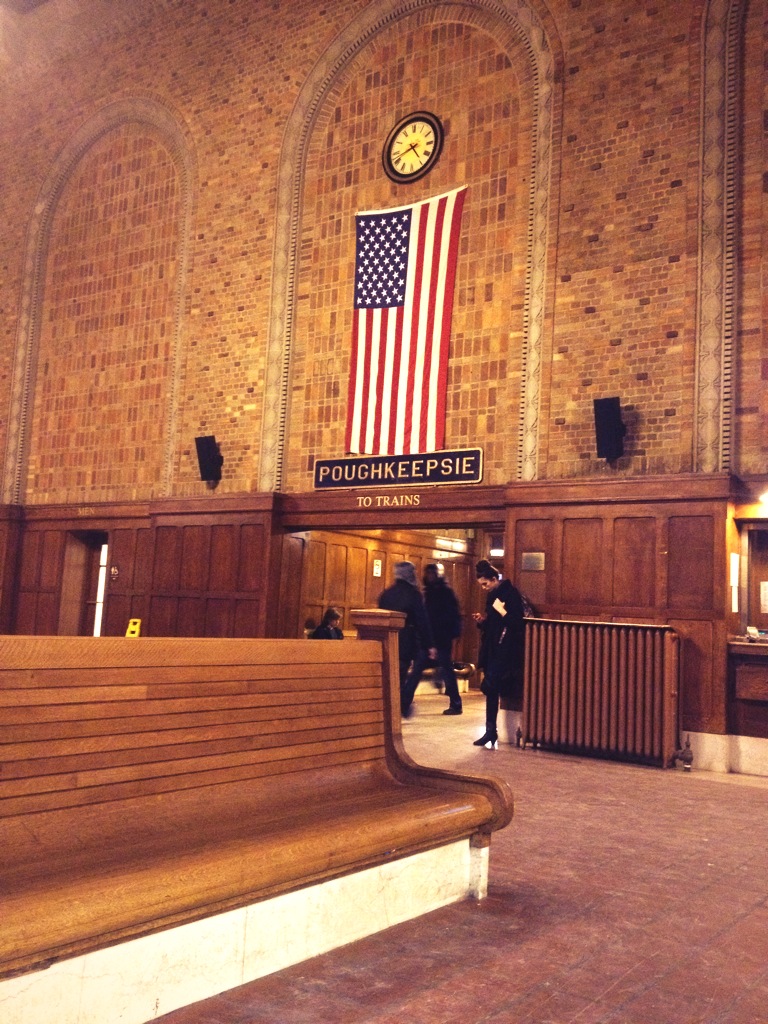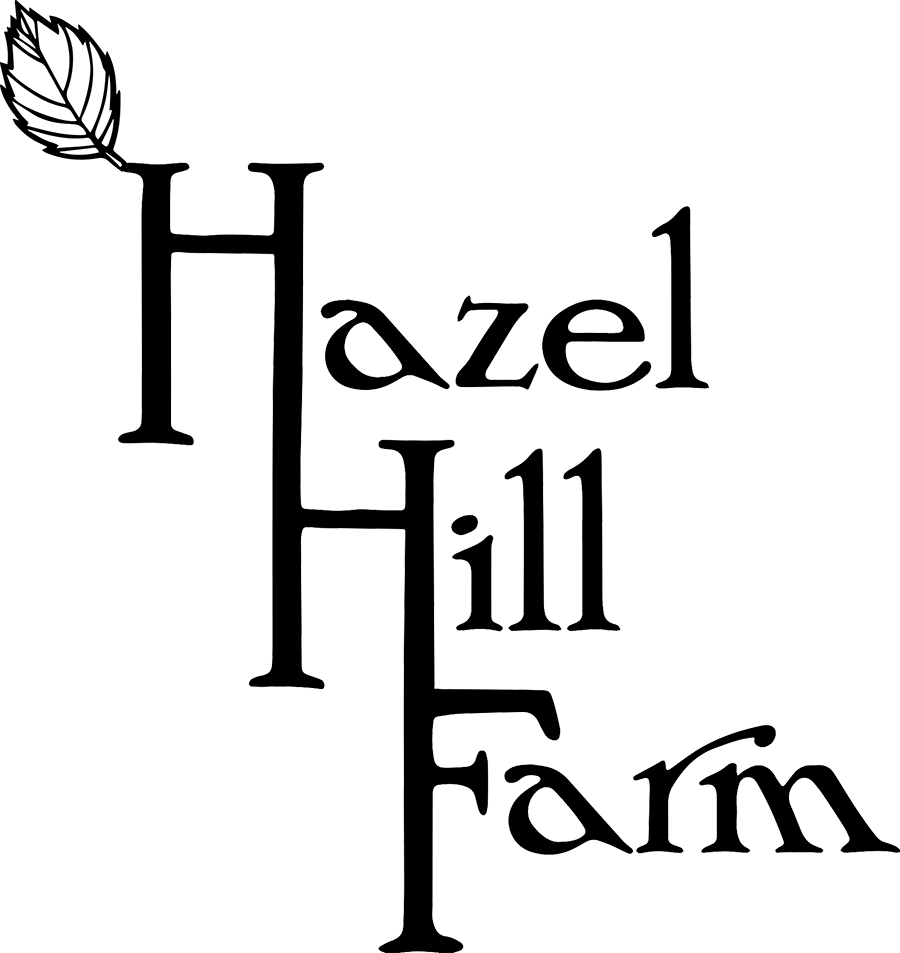Last week found me in Tarrytown, NY for the Young Farmers Conference, an annual event for young and beginning farmers held at the Stone Barns Center, home of the famed Blue Hill restaurant. Because of the limitations of the facility, they have to restrict how many people come, so unlike MOSES last year with 3,000 participants, Stone Barns was at capacity with about 300. That means every year people get turned away from their lottery-based sign-ups and those who make it are super excited to be there. Instead of doing a full play-by-play of the whole event, I'm just going make a few lists here before posting some pictures. The whole 3 days was filled with new ideas, both from the workshops and presenters and from conversations with other participants. No doubt I'll be referring back to things that I encountered at YFC in future blog posts!
Workshops I Attended:
- Sustainable Hog Production (full day seminar)
- Why Every Farm Should Have a Sugaring Operation
- Agroforestry
- Beekeeping for Beginners
- Electric Fencing
- Welding
- Whole Animal Butchery
With the exception of the full-day seminar, these workshops were each an hour and a half, which was time enough for an introduction to the topic, some specifics and Q&As, and a nudge in the right direction for more resources and information.
Speakers and Full-Conference Events:
- Staged reading of the verbatim play "Farmscape" and Q&A with playwright
- Krysta Harden, USDA Deputy Secretary
- Wendell Berry in conversation with daughter Mary Berry
- Chellie Pingree, congresswoman and farmer from Maine
- Kathleen Merrigan, former USDA Deputy Secretary and person behind the Know Your Farmer, Know Your Food initiative
- Dan Barber, chef and co-owner of Blue Hill
- Cheryl Rogowski, amazing, socially-conscious farmer and MacArthur genius
- Klaas and Mary-Howell Martens, groundbreaking NY farmers
- Social hour, barn dance, and lots of meal-time conversation over really good food
Fun facts, tidbits, things to think about from the conference:
- From Tom Frantzen: while we may not agree with the methods used by industrial agriculture, we need to recognize that when it comes to efficiency and profitability, they do everything for a reason. When we prioritize humane treatment, quality of life and sustainability, we inherently make compromises in other areas. This is one of the "brutal facts" that we need to confront.
- Pigs can be used to eradicate invasive species like multiflora rose!
- The Practical Farmers of Iowa are doing amazing things and I need to spend a few days poking around that website.
- You need to boil 40 gallons of sap to yield one gallon of maple syrup, which means that syrups is one of those crops that really needs a certain scale to be efficient. Small-scale aggregators who drive around buying raw sap from farmers and boiling it down using super-energy efficient burners is a solution to this problem.
- Lacking this infrastructure, plain maple sap can also be a marketable commodity! Think of the popularity of coconut water and of local food - these combine perfectly in maple sap, which can be guzzled outright or used to brew coffee, make soda, cook, etc. Think of the possibilities!
- To be considered Agroforestry, there need to be three levels of production. For example - canopy (trees/lumber/fruit), forages (grasses and legumes), animals (pigs, cows, bees, etc.)
- A 1% increase in organic matter in topsoil sequesters an additional 10 tons of carbon per acre.
- You can use a close-planted stand of evergreens like an overgrown/abandoned Christmas tree farm for an "outdoor living barn" to shelter cold-hardy cattle like Scottish Highlands during the winter.
- Nurse bees, who take care of the eggs and larvae in the hive, are the youngest of worker bees and don't yet have stingers.
- On each flight, a bee will keep collecting pollen from the same species as the first flower it encounters.
- The pesticides that are thought to be a possible cause of colony collapse are fat soluble and may be stored in the wax (fat) in beehives, so using a method where the bees rebuild their wax from scratch every year, like top bar hives, might be effective in slowing the demise of the honeybee.
- An electric fence is only as strong as its ground, which should be much bigger than you would think. The point is to be enough conductive metal in the ground to attract the current going through an animals nose and to the ground through its hooves to complete a circuit, which is what actually makes the shock.
- You should always recharge deep-cycle batteries before they drop below 40% of their charge for maximum utility.
- Never buy a used welder from a welding shop - they use them all day every day! Buy from a place where it gets more gentle/occasional use.
- Having even a small welder means easy on-farm repairs and fabrication for tractors, greenhouses, etc!
- Coppa is an alternative to prosciutto that still has beautiful marbling but due to its size only take a few months as opposed to over a year for a whole ham.
- Finally, according to Wendell Berry, our generation will always be living on the "margins of a bad economy," which means that we're going to have to "learn to use the things that other people have given up on - including maybe land."
I'm off to the airport for a holiday visit to family in Argentina! More in the new year!

